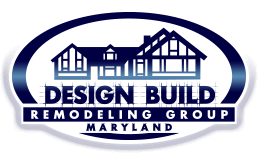Deciding to create an accessible home addition for aging in place in Eldersburg, MD, requires thoughtful planning, a detailed understanding of the needs of the elderly, and an appreciation for a design that doesn’t compromise on aesthetics while ensuring safety and comfort. As we age, our mobility, agility, and overall ability to perform daily tasks may diminish, making the design of our living environment increasingly critical.

The Importance of Universal Design
Universal design principles are fundamental when creating an accessible home addition. Home remodeling contractors use this approach to cater to people of all ages, ensuring that the home is comfortable, safe, and easily accessible to everyone, especially aging seniors. Features like wider doorways, eliminating steps at the front door, and lower electrical outlets are not only practical for wheelchair users and those with mobility aids but also convenient for everyone else, including children.
No-Step Entryways and Accessible Paths
A no-step entry is essential for an accessible home design. It facilitates easy access for everyone, regardless of their mobility levels. A properly designed no-step entry in Eldersburg should consider weather conditions, ensuring safe passage during Maryland’s varied seasons. Materials with good traction will prevent slips, and the slope should be gentle enough to accommodate wheelchairs without the risk of water pooling.
Enhancing Bathroom Safety: a Top Priority
The bathroom is a key area of focus in accessible home design due to the high risk of slips and falls. Adaptations such as walk-in showers, grab bars strategically placed near the toilet and in the shower, and accessible sinks can significantly reduce these risks. Designing bathrooms with these features in mind ensures that seniors in Eldersburg can maintain their independence while taking care of their personal hygiene in safety.
Kitchens Designed for Accessibility
Kitchen remodeling experts say that an accessible kitchen design should enable seniors to perform tasks with ease. Adjustable countertops can cater to individuals who use a wheelchair or prefer sitting while working. Easy-access storage solutions, like lower cabinets and pull-out shelves, minimize the need to stretch or bend, creating a safer and more comfortable environment for cooking and dining.
Flooring and Lighting Considerations
Choosing the right flooring is crucial for preventing falls. Non-slip flooring options are ideal for maintaining safety without compromising on the look of the home. Similarly, enhancing the lighting throughout the home, especially in hallways, staircases, and task areas like the kitchen and bathroom, can significantly improve navigation and reduce the risk of accidents.
Budgeting and Planning for Your Addition
Financing an accessible home addition requires careful planning. Eldersburg residents considering such a project should explore various funding options, including government assistance programs, Home Equity Lines of Credit (HELOC), or personal loans. Engaging with local contractors experienced in designing and building accessible spaces is essential. They can provide valuable insights into cost-saving measures without compromising the functionality or aesthetic of the addition.
In conclusion, creating an accessible home addition for aging in place in Eldersburg, MD, involves careful consideration of universal design principles, focusing on areas like entryways, bathrooms, and kitchens, and ensuring that the home is safe and comfortable for all ages. By understanding the unique needs of seniors and integrating safety features naturally into the home design, families can create a space that truly supports aging in place. Consulting with professionals who have experience in accessible design will help ensure that the addition meets the current and future needs of aging family members, allowing them to live independently and comfortably in their own homes. Looking for the best new addition contractors in Washington DC? Design Build Remodeling Group of Maryland is here to help. Call us at (443) 300-2268 or fill out our contact form to schedule an appointment.





